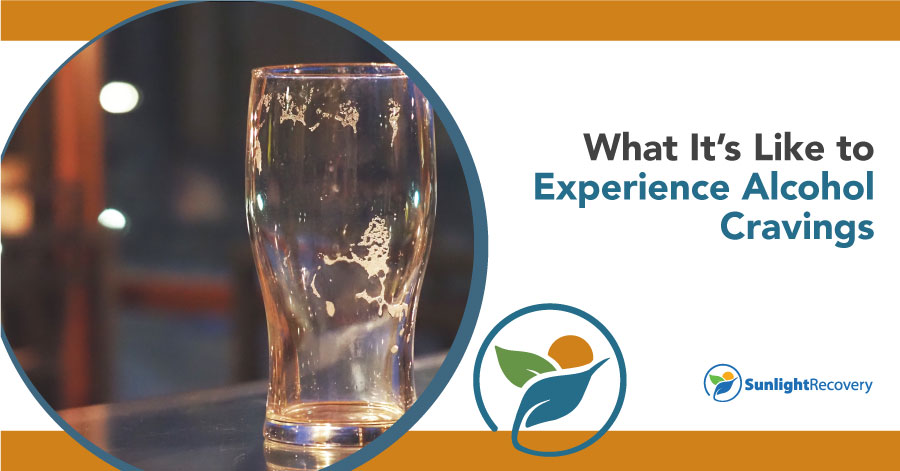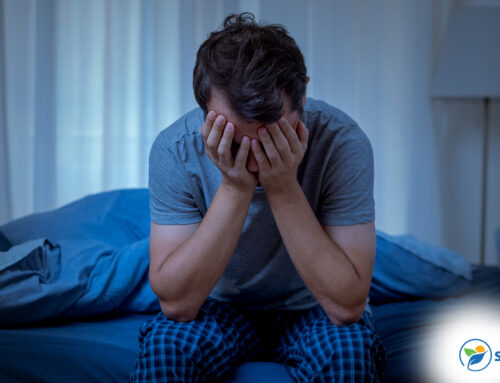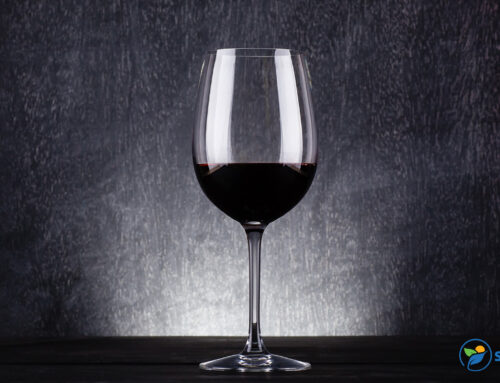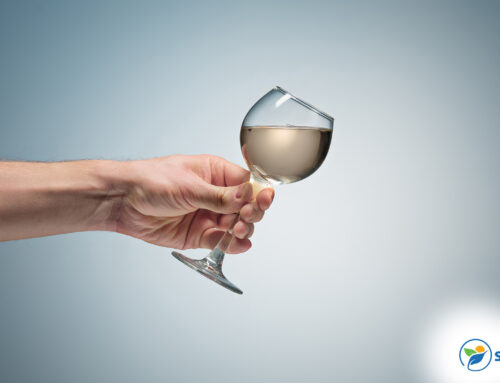Alcohol is an influential substance in society, and its use dates back thousands of years. The earliest traces of alcohol use are from between 7000 and 6600 BC in China. In ancient India, between 3000 and 2000 BC, alcoholic beverages were called “sura.” In the 16th century, alcohol was used medicinally in Great Britain, and by the 18th century, gin consumption had become widespread. Since then, alcohol has become commonplace, and despite its potential for harm, society still ritualizes its use.
Statistics from the National Institute of Alcohol Abuse and Alcoholism in 2019 revealed that 86% of people in the United States aged 18 and over have consumed alcohol at some point in life. Twenty-six percent of people 18 and over engaged in monthly binge drinking. Moreover, a total of 14.5 million people had an alcohol use disorder that year. Since then, national consumption has increased, and the Covid-19 pandemic saw a major boom in alcohol sales.
If you struggle with alcohol use disorder, or AUD, you’re certainly not alone. Approximately 29.5 million people over the age of 12 in the United States struggle with alcohol abuse and misuse, according to the National Institute on Alcohol Abuse and Addiction. Although quitting seems impossible, the truth is that millions of people have overcome alcohol addiction, opting to decrease or quit alcohol consumption, a commendable move toward a healthier lifestyle. Yet this adjustment may bring about cravings, particularly during the initial stages of recovery. While these cravings can be intense, the positive aspect is that they typically last for only a brief period. By finding distractions and enduring these moments, you can persist on your journey to wellness.
What Do Alcohol Cravings Feel Like?
Alcohol cravings are strong urges to drink, and they can be triggered by internal or external circumstances. For example, if you’re feeling down, you may decide having a drink will help. You may also crave it as a way to escape feeling bad. Being around other people who are drinking might also trigger alcohol cravings.
Alcohol cravings can be very intense, and people who experience them may feel unable to control their urges. They may experience a strong need to drink, even if they’re not thirsty. The thought of alcohol may become all-consuming and they might find it difficult to think about anything else. Craving alcohol can also cause physical symptoms, such as a racing heart or increased anxiety.
Some people may feel like they’re experiencing withdrawal symptoms, such as shaking or sweating. They may have extreme discomfort and restlessness. Alcohol cravings can be difficult to resist, but there are ways to manage them. If you’re struggling with alcohol cravings, it’s important to seek professional help. Many resources are available to assist you in overcoming your urges and staying on the path to recovery.
Because alcohol cravings can be so intense and difficult to resist, alcohol addicts in recovery often descend into relapse. That’s why getting help and learning proper coping strategies is paramount to successful recovery.
Cravings vs. Withdrawal Symptoms
Alcohol cravings are often misconstrued as alcohol withdrawal symptoms. This might be because they often go hand in hand. When somebody who’s heavily addicted to alcohol experiences withdrawal, it often manifests in the form of cravings. The key difference is that alcohol cravings can occur anytime, even if you haven’t had a drink for a whole year. Withdrawal symptoms, on the other hand, can last up to one week after having your last drink.
Alcohol withdrawal symptoms include:
- Anxiety
- Shaky hands
- Headache
- Nausea
- Vomiting
- Insomnia
- Sweating
- Confusion
- Racing heart
- High blood pressure
- Fever
- Heavy sweating
- Hallucinations
It’s worth pointing out that severe alcohol withdrawal can be fatal, and severe symptoms are considered a medical emergency. Alcohol cravings can’t cause death and aren’t considered dangerous.
What Causes Alcohol Cravings?
A variety of scenarios may lead to intense cravings for alcohol. Here are the three key reasons for experiencing cravings when reducing or quitting drinking:
- Withdrawal. Frequent drinking builds alcohol tolerance, requiring more for the desired effect. This causes increased susceptibility to withdrawal symptoms like anxiety, irritability, nausea, headaches and strong alcohol cravings.
- Environmental or emotional triggers. Cravings may be triggered by specific situations or emotions. Examples include being in a familiar bar, attending parties or taking part in holiday celebrations.
- Internal triggers. Situations that cause stress can also lead to cravings when the drinker seeks the familiarity of the relaxed feeling associated with drinking.
- Old habits. Quick-to-form habits, such as reaching for a drink after work or marking the start of the weekend, can act as cues, leading to cravings for alcohol.
Managing Alcohol Cravings
Whether you’re aiming to reduce your alcohol intake or embarking on a journey to complete sobriety, understanding and effectively managing cravings is a vital component of the process. Learning practical strategies and insights to empower you on your path to freedom from alcohol dependence is a good start.
Alcohol cravings can be powerful and persistent, often posing challenges during recovery. By delving into the reasons behind these cravings and implementing targeted approaches, you can regain control over your relationship with alcohol. From identifying triggers and building a strong support system to adopting healthier habits and seeking professional guidance, it’s possible to navigate the complexities of alcohol cravings and equip yourself with the tools to overcome them, fostering a healthier, more fulfilling lifestyle.
Alcohol cravings can be persistent and are the bane of anyone in recovery. That’s why it’s important to have strategies in place to better handle it when you’re craving a drink. Here are some tips you can use to combat your cravings:
1. Identify Your Personal Triggers
To do this, ask yourself, “Why do I crave alcohol?” Was it the sound of a friend cracking open an ice-cold beer? Or did having a bad day at work set you off? Without doing this introspective investigation, you won’t be able to find what triggers you. It might be helpful to keep a diary and note your surroundings every time you get a craving. You’ll surely find a pattern that’ll give you insight into what you should avoid.
2. Get Into a Routine
Having a solid daily routine that keeps you busy and happily occupied will help you steer away from alcohol. It’s less likely that you’ll run into triggers if you’re in the gym every day after work or reading your favorite author with a warm cup of tea. Find a routine that keeps you away from anything that might trigger you. The more you engage in a healthy routine, the easier it’ll become.
3. Find a Supportive Community
Support communities are scientifically proven to be beneficial for people in recovery. If you’ve just left a clinic and worry that you won’t be able to handle your alcohol cravings alone, it’s helpful to share with people in a similar position. Alcoholics Anonymous or other support groups give you the chance to feel understood and share coping strategies.
Further Tips:
- Identifying triggers that make you want to drink, especially during periods of withdrawal. A Scripps Research study found that the alcohol cravings experienced during withdrawal can be harder to resist when a drinker is in the throes of withdrawal. This study underscores the need to recognize situations, emotions or environments that trigger your cravings. Write down these triggers to raise awareness.
- Creating a system of support. Surround yourself with a network of friends, family or a support group. Share your goals and seek encouragement during challenging times.
- Establishing new habits that don’t involve drinking. Replace old drinking-related habits with healthier alternatives. Engage in activities that bring satisfaction and fulfillment without alcohol present.
- Distracting yourself. Mindful distraction can be an effective coping mechanism when battling alcohol cravings. When cravings arise, distract yourself with activities you enjoy. Practice mindfulness or deep-breathing exercises to stay focused.
- Seeking professional guidance. Consult with a health care professional or therapist for personalized advice. Explore therapy options, such as cognitive behavioral therapy (CBT).
- Making healthy choices for yourself. Prioritize regular exercise to boost mood and reduce stress, lessening your urge to drink. Ensure a balanced diet and sufficient sleep for overall well-being.
- Avoiding triggers. If certain places or events consistently trigger cravings, consider avoiding them during early stages of recovery.
- Patting yourself on the back. Celebrating milestones is key when it comes to tackling an alcohol problem. Acknowledge and celebrate your achievements in reducing or quitting alcohol, and reward yourself with nonalcoholic treats.
- Keeping the water coming. Staying hydrated can help with alcohol cravings. Drink plenty of water throughout the day to maintain hydration and curb cravings.
- Maintaining a positive outlook. Focus on the positive aspects of your journey toward a healthier lifestyle. Remind yourself of the benefits of reducing or eliminating alcohol consumption. Remember, seeking professional help and maintaining a positive mindset are crucial steps in effectively stopping alcohol cravings.
Help With Overwhelming Urges to Drink
Wondering how to cope when the desire to drink becomes overwhelming? If you’re grappling with intense alcohol cravings, seeking specialized support is a proactive step, not a sign of weakness. There’s no shame in reaching out for help; in fact, it’s a courageous decision.
Alcohol is a drug like any other, but many people mistakenly believe they can overcome addiction to alcohol without help from others. It’s this belief that causes many people to avoid reaching out for assistance — only 10% of people who abuse alcohol get the help they need.
If you’re addicted to alcohol, you may go through repeat cycles of withdrawing from alcohol, abstaining from alcohol and relapsing from alcohol. Alcohol cravings can be powerful, driving the need to drink alcohol and resulting in a relapse. But it doesn’t have to be that way, as help is available.
To get started, consider discussing your cravings and related symptoms with your family doctor. They can offer valuable advice and guide you toward specialized rehabilitation if necessary. Alternatively, reach out directly to a private provider like Sunlight Recovery.
Get the Help You Need
Alcoholism is a serious condition, and people in recovery are often set back by being unable to handle cravings. It’s a major reason for falling back into relapse. If you’re struggling to cope with cravings alone, reach out to us. Sunlight Recovery is a leading mental health facility with experts who are ready to help. Contact us today at (888) 402-3647 for assistance with your recovery needs.






